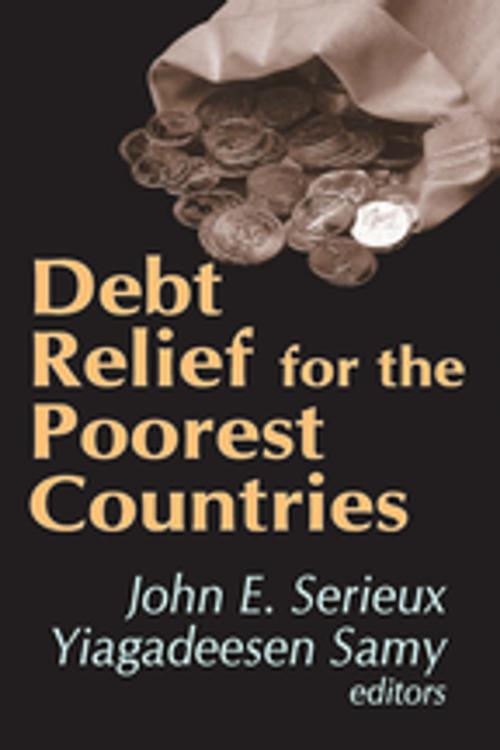| Author: | ISBN: | 9781351523387 | |
| Publisher: | Taylor and Francis | Publication: | February 6, 2018 |
| Imprint: | Routledge | Language: | English |
| Author: | |
| ISBN: | 9781351523387 |
| Publisher: | Taylor and Francis |
| Publication: | February 6, 2018 |
| Imprint: | Routledge |
| Language: | English |
The debt problems of poor countries are receiving unprecedented attention. Both federal and non-governmental organizations alike have been campaigning for debt forgiveness for poor countries. The governments of creditor nations responded to that challenge at a meeting sponsored by the G-7, International Monetary Fund, and World Bank, all of which upgraded debt relief as a policy priority. Their initiatives provided for generous interpretations of these nations' abilities to sustain debt, gave them opportunities to qualify for debt relief more rapidly, and linked debt relief to broader policies of poverty reduction. Despite this, the crisis has only deepened in the first years of the new millennium. This brilliant group of contributions assesses why this has occurred. In plain language, it considers why debt relief has been so long in coming for poor countries. It evaluates the cost of a persistent overhang in debt for those countries. It also examines, head on, whether enhanced debt relief initiatives offer a permanent exit from over-indebtedness, or are merely a short-term respite. Above all, this volume for the first time addresses the issues on the ground: that is, the views and opinions about debt relief on the part of leaders in advanced nations, and the probability of further support for the most impoverished lands. In this approach, the editors and contributors have made an explicit and successful attempt to be inclusive and relevant at all stages of the analysis. This volume covers the full range of the poorest countries, with contributions by John Serieux, Lykke Anderson and Osvaldo Nina, Befekadu Degefe, Ligia Maria Castro-Monge, and Peter B. Mijumbi. Collectively, they offer a sobering scenario: unless measures are put in place now, in anticipation of further crises, the future of the very poorest nations will remain bleak and troublesome.
The debt problems of poor countries are receiving unprecedented attention. Both federal and non-governmental organizations alike have been campaigning for debt forgiveness for poor countries. The governments of creditor nations responded to that challenge at a meeting sponsored by the G-7, International Monetary Fund, and World Bank, all of which upgraded debt relief as a policy priority. Their initiatives provided for generous interpretations of these nations' abilities to sustain debt, gave them opportunities to qualify for debt relief more rapidly, and linked debt relief to broader policies of poverty reduction. Despite this, the crisis has only deepened in the first years of the new millennium. This brilliant group of contributions assesses why this has occurred. In plain language, it considers why debt relief has been so long in coming for poor countries. It evaluates the cost of a persistent overhang in debt for those countries. It also examines, head on, whether enhanced debt relief initiatives offer a permanent exit from over-indebtedness, or are merely a short-term respite. Above all, this volume for the first time addresses the issues on the ground: that is, the views and opinions about debt relief on the part of leaders in advanced nations, and the probability of further support for the most impoverished lands. In this approach, the editors and contributors have made an explicit and successful attempt to be inclusive and relevant at all stages of the analysis. This volume covers the full range of the poorest countries, with contributions by John Serieux, Lykke Anderson and Osvaldo Nina, Befekadu Degefe, Ligia Maria Castro-Monge, and Peter B. Mijumbi. Collectively, they offer a sobering scenario: unless measures are put in place now, in anticipation of further crises, the future of the very poorest nations will remain bleak and troublesome.















